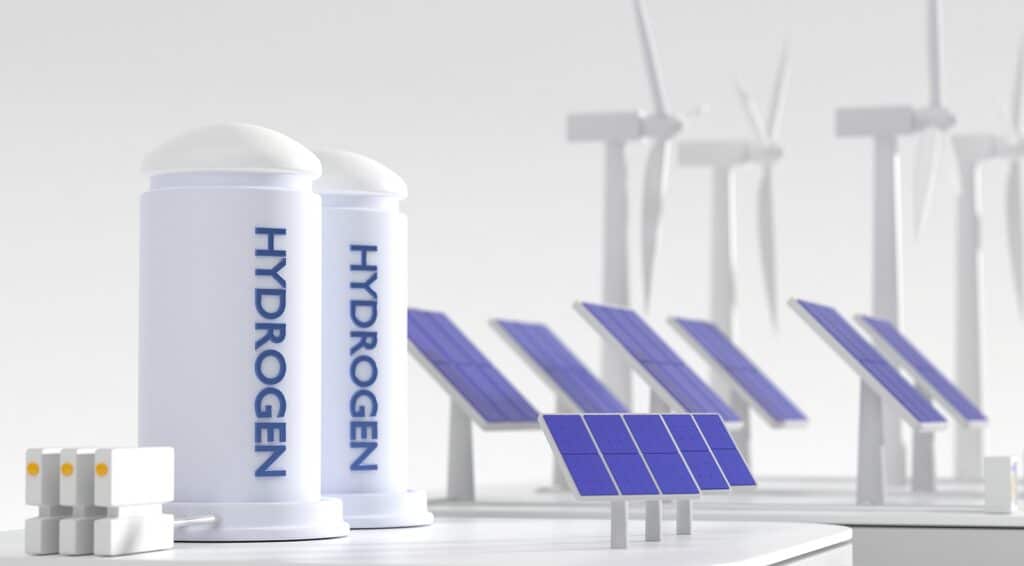As I consider ways to reduce my electricity bills and embrace a greener lifestyle, renewable energy has caught my attention as a cleaner and more sustainable power option. However, I've come across a significant challenge: the intermittent nature of renewable sources like solar and wind energy. It's clear that storing excess energy generated during peak production periods is essential to make the most of these resources and save on electricity costs. This is where energy storage consulting becomes crucial.
By consulting with experts in energy storage solutions, I can unlock the full potential of renewable energy at my disposal. The consultants can guide me on effective ways to store the cheap electricity generated during off-peak hours, enabling me to utilize it efficiently when electricity rates are higher during peak hours. This approach not only helps me save money on my electricity bills but also contributes to a greener future by reducing reliance on traditional energy sources and their associated environmental impacts.
With the assistance of energy storage consulting, I can design a personalized system that aligns with my energy consumption patterns and complements the fluctuating nature of renewable energy sources. By investing in energy storage solutions, I can enhance the overall efficiency of my energy usage and take a step towards a more sustainable lifestyle while enjoying significant cost savings in the process.
What is Renewable Energy?
Renewable energy refers to the sustainable and environmentally conscious means of generating power, harnessed from natural resources that are perpetually replenished by natural processes. These resources encompass a diverse range of elements, including sunlight, wind, rain, tides, and geothermal heat. Unlike conventional energy sources like fossil fuels, which are finite and carry adverse environmental impacts such as greenhouse gas emissions and air pollution, renewable energy options offer a virtually inexhaustible supply and do not contribute significantly to environmental degradation.
- Solar energy: This involves capturing sunlight through photovoltaic cells or solar thermal systems to convert it into electricity or heat water for domestic and industrial purposes.
- Wind energy: Wind turbines harness the kinetic energy of the wind and transform it into electricity, making it one of the fastest-growing renewable energy sources globally.
- Hydropower: Utilizing the energy of flowing or falling water, hydropower plants generate electricity by directing water through turbines.
- Biomass: Organic materials such as wood, agricultural residues, and animal waste can be burned or converted into biogas to produce energy for heating, electricity, or transportation.
- Geothermal energy: This renewable source taps into the natural heat from the Earth's core, using geothermal power plants to generate electricity or provide direct heating and cooling for buildings.
Why is Energy Storage Important for Renewable Energy?
Energy storage plays a crucial role in the successful integration and utilization of renewable energy sources, addressing one of the most significant challenges associated with renewables—their intermittency. As renewable resources like wind and solar are dependent on weather conditions and time of day, their energy generation fluctuates, resulting in periods of both excess and scarcity.
To maximize the benefits of renewable energy, it is imperative to capture and store the surplus energy generated during peak production periods for use during times when resources are scarce or demand is high. This process enables a more balanced and reliable energy supply, ensuring that renewable power can be utilized efficiently, regardless of the natural variations in resource availability.
Several key reasons highlight the importance of energy storage for renewable energy:
- Grid Stability: Energy storage systems can stabilize electricity grids by smoothing out fluctuations in energy supply, thereby minimizing disruptions and maintaining a consistent and reliable power output. This stability is critical for the integration of large-scale renewable energy sources into existing power grids.
- Time Shifting: Energy storage allows excess energy to be stored during periods of high renewable output, such as sunny or windy days. This surplus energy can then be released during peak demand periods or when renewable generation is low, ensuring a continuous power supply.
- Decoupling Generation and Consumption: Energy storage decouples energy production from consumption, enabling renewables to meet demand at any time. This flexibility reduces the need for backup power from fossil fuel-based sources, leading to lower greenhouse gas emissions and a more sustainable energy system.
- Off-Grid Applications: In remote or off-grid areas, energy storage can store excess renewable energy for later use, making it possible for communities to rely primarily on renewable sources without the need for extensive grid connections.
- Backup Power: Energy storage systems provide a reliable backup power source during emergencies or power outages, enhancing grid resilience and ensuring essential services can continue functioning.

The Need for Energy Storage Consulting
Energy storage consulting involves providing expert advice and guidance on how to integrate energy storage solutions into existing renewable energy systems. The aim is to optimize the use of renewable energy sources by storing excess energy during periods of high production and releasing it during times of low production.
The need for energy storage consulting arises from the inherent limitations of renewable energy sources. Unlike traditional sources of energy like coal and natural gas, renewable energy sources are dependent on external factors like weather conditions and time of day. For instance, solar energy production is highest during the day, but demand for electricity typically peaks in the evenings when the sun has set. This creates a mismatch between supply and demand that energy storage solutions can help alleviate.
Energy storage consulting is crucial in identifying the most suitable storage solutions for specific renewable energy systems. There are various types of energy storage systems available, each with their own advantages and disadvantages. A competent energy storage consultant will be able to advise on the best storage solutions for a particular system, taking into account factors like energy requirements, available space, and budget.
Benefits of Energy Storage Consulting
Increased Efficiency
Energy storage consulting plays a pivotal role in enhancing the efficiency of renewable energy systems. By incorporating energy storage solutions, surplus energy generated during peak production periods is no longer wasted. Instead, it is intelligently stored for use during periods of low production or high demand. This not only ensures a more stable and continuous power supply but also reduces the need to rely on traditional energy sources, leading to significant cost savings and a notable reduction in carbon emissions.
Optimized Energy Reliability
For businesses and organizations heavily dependent on a consistent electricity supply, energy storage solutions provide a reliable backup during grid disruptions or power outages. Energy storage consulting evaluates specific needs and recommends appropriate storage technologies to ensure a stable and uninterrupted electricity supply, preventing potential disruptions that could lead to financial losses and operational downtime.
Cost Savings and Financial Benefits
Energy storage solutions bring about substantial cost savings in various ways. They enable the storing of excess energy during periods of low demand and release it when demand peaks. By relying more on stored energy during high demand, organizations can reduce their reliance on costlier traditional energy sources, effectively managing peak demand charges and lowering overall energy expenses. Energy storage consulting guides clients in choosing cost-effective storage solutions tailored to their energy consumption patterns and financial goals.
Environmental Impact and Carbon Footprint Reduction
Combatting climate change necessitates a significant reduction in carbon emissions, and energy storage plays a vital role in achieving this goal. By storing and efficiently utilizing renewable energy, organizations can reduce their dependence on fossil fuels, which are major contributors to greenhouse gas emissions. Energy storage consulting assesses the environmental impact of an organization's energy usage and recommends suitable storage solutions to minimize their carbon footprint, fostering a more sustainable and eco-friendly approach to energy consumption.
Maximizing Renewable Energy Integration
Energy storage consulting facilitates the seamless integration of renewable energy sources into existing power grids and energy systems. By addressing the intermittency of renewable resources like solar and wind power, storage solutions ensure a more consistent and balanced energy supply, thereby optimizing the utilization of renewable energy. This fosters a smoother transition towards a cleaner energy mix, reducing reliance on non-renewable resources and promoting a greener energy landscape.
Customized Solutions and Technological Advancements
Every organization's energy needs and infrastructure are unique, and energy storage consulting offers tailor-made solutions to suit specific requirements. Consultants stay updated with the latest advancements in energy storage technologies, ensuring that clients benefit from the most cutting-edge and efficient solutions available in the market.

Types of Energy Storage Solutions
The landscape of energy storage solutions offers a diverse array of technologies, each possessing its own set of advantages and limitations. A competent energy storage consultant possesses the expertise to recommend the most suitable storage solutions tailored to specific systems, considering factors like energy requirements, available space, and budget constraints. Let's explore some of the most common types of energy storage solutions:
Batteries
Batteries stand as the most widely used energy storage solution, renowned for their versatility and efficiency. They excel at storing excess energy produced during peak generation periods and releasing it when demand rises or renewable resources decline. Batteries are relatively affordable, easily deployable, and find widespread application in various renewable energy systems, making them a popular choice among homeowners, businesses, and small-scale applications.
Pumped Hydro
Pumped hydro represents a mature and established energy storage technology that capitalizes on the gravitational potential of water. During times of surplus energy, water is pumped uphill to a higher reservoir. Later, during periods of increased demand or lower energy production, the stored water is released downhill, passing through turbines to generate electricity. Pumped hydro offers excellent efficiency and long-term storage capabilities, but it requires significant space and access to suitable water resources, making it more feasible for large-scale applications.
Flywheels
Flywheels function as energy storage devices that store kinetic energy in a rotating mass. They are particularly favored for industrial and commercial applications due to their compact size, high power density, and extended lifespan compared to batteries. However, flywheels can be costlier to manufacture and are sensitive to temperature changes, limiting their suitability in certain environments.
Thermal Storage
Thermal storage involves capturing excess energy in the form of heat or cold for later use in powering buildings or industrial processes. This technology proves valuable, especially in regions with significant temperature fluctuations, as it helps regulate indoor temperatures and reduces the reliance on air conditioning or heating systems. However, implementing thermal storage can be more expensive and requires adequate space for its deployment.
Compressed Air Energy Storage (CAES)
Compressed air energy storage utilizes compressed air to store excess energy, which is later released to generate electricity. CAES is particularly advantageous for large-scale energy storage and can provide a viable solution for managing the intermittency of renewable resources. Nonetheless, its implementation demands substantial space for the storage vessel and compressors, and costs can be relatively higher.
Hydrogen Storage
Hydrogen storage involves converting excess energy into hydrogen gas through electrolysis. The hydrogen can later be used in fuel cells or other applications to produce electricity or power various devices. Hydrogen storage is gaining traction as a promising long-term storage solution, especially for sectors like transportation and heavy industry.
Hybrid Solutions
Many energy storage projects often combine multiple storage technologies to create hybrid systems that leverage the strengths of each component. Hybrid solutions can provide enhanced reliability, improved efficiency, and better optimization of renewable energy integration.
Choosing the Right Energy Storage Solution
Selecting the ideal energy storage solution to complement a specific renewable energy system calls for a comprehensive understanding of the system's unique characteristics, energy requirements, available space, and financial constraints. Expert guidance from an energy storage consultant becomes invaluable in identifying the most appropriate storage solutions tailored to the specific needs of the system. Several key considerations come into play when evaluating and choosing the optimal energy storage solution:
Energy Requirements
Understanding the energy demands of the renewable energy system is essential in determining the size and type of energy storage solution required. Systems with high energy requirements may necessitate a combination of storage solutions, while systems with lower energy demands might be adequately served by a single storage option. The consultant will conduct a thorough energy analysis to assess the storage capacity needed for peak demand periods and to ensure a stable power supply during periods of low renewable energy production.
Available Space
The amount of available physical space on-site significantly influences the selection of an appropriate energy storage solution. Compact storage solutions, like batteries, can be efficiently installed in smaller spaces, making them suitable for urban and residential applications. On the other hand, solutions such as pumped hydro storage, which require ample land and access to suitable water resources, are more suitable for larger installations with abundant space.
Budget
Financial considerations play a critical role in the decision-making process. The allocated budget will influence the type and size of the energy storage solution that can be realistically implemented. Energy storage consultants take into account the financial constraints of the project and recommend cost-effective options that align with the available budget while maximizing benefits in terms of energy efficiency and reliability.
System Integration and Compatibility
The chosen energy storage solution must seamlessly integrate with the existing renewable energy system and complement its overall functionality. Integration concerns include ensuring the compatibility of different technologies, optimizing control systems, and managing energy flow between storage and generation components. An energy storage consultant evaluates system compatibility to avoid potential issues and ensure efficient operations.
Scalability and Future Expansion
An energy storage solution should be designed with scalability in mind, considering the potential for future expansions or increased energy demands. Consultants assess the growth prospects of the renewable energy system and recommend storage solutions that can be easily expanded or upgraded as needed.
Operational and Maintenance Requirements
Each energy storage technology comes with its own set of operational and maintenance needs. A comprehensive understanding of these requirements is crucial to ensure the system's longevity, efficiency, and minimal downtime. Energy storage consultants advise on the appropriate maintenance protocols and assess the long-term operational costs associated with each storage option.
Environmental Impact
Environmental sustainability is a key consideration for many projects. Consultants assess the environmental impact of different storage solutions, taking into account factors such as materials used, recycling options, and the overall carbon footprint to guide stakeholders towards eco-friendly choices.
Conclusion
In this informative article, the focus is on the significance of energy storage consulting in the context of renewable energy. The intermittent nature of renewable sources like solar and wind energy poses challenges for homeowners seeking cleaner and more sustainable power options while reducing electricity bills.
The article highlights how energy storage consulting can unlock the full potential of renewable energy by guiding homeowners on effective ways to store excess electricity generated during off-peak hours and utilize it efficiently during peak hours. By optimizing energy usage and integrating energy storage solutions, homeowners can enjoy cost savings, a stable power supply, and a reduced carbon footprint, contributing to a greener future.
The article also covers various types of energy storage solutions and the importance of choosing the right one to suit individual energy needs, available space, and budget constraints. Overall, the article encourages readers to consider renewable energy and energy storage as a means to embrace a sustainable lifestyle and make a positive impact on the environment.
Sources:
https://energystorage.org/energy-storage/energy-storage-101/

